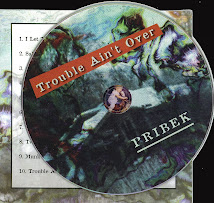[Picture LINK]
The Practical University - NYTimes.com:
"What is a university for?
Are universities mostly sorting devices to separate smart and hard-working high school students from their less-able fellows so that employers can more easily identify them? Are universities factories for the dissemination of job skills? Are universities mostly boot camps for adulthood, where young people learn how to drink moderately, fornicate meaningfully and hand things in on time? (DAVID BROOKS. Published: April 4, 2013. LINK) ... "
'via Blog this'
" ... A recent article in the Washington Post began with the statement that today’s college students “may be part of the last generation for which ‘going to college’ means packing up, getting a dorm room and listening to tenured professors.” By using these three aspects of college life – packing up, dorm rooms, and tenured professors – the writer was able to clearly illustrate the ritualized process of traditional university education, setting the stage for major changes coming in the very near future.Thomas Frey describes in his article deficiencies that come with dominant world powers. He relates dominant world power with a kind of tunnel vision mentality. The Romans, while in power, did not add much to mathematics because of their numbering system, Roman numerals. Because each Roman numeral was more of a "formula" than a "place holder" number. As a deficient numbering system, Roman numerals did not "promote" higher math.
In 2007 I released a paper on the future of education, culminating an 18 month effort to probe the likely evolution of a system that has become emotionally linked with many of our country’s and the world’s deficiencies. (By Futurist Thomas Frey. no date. LINK) ... "
" ... [What] made Roman numerals so inferior was that each number lacked specific numeric positioning, making each number more of an equation than a single integer. The added layer of complexity prevented people from doing higher math. (ibid. Frey, Thomas) ... "Unfortunately, in our cataloging society, we are today, like the Romans, too deeply immersed in our systems:
" ... Most of these systems we take for granted – systems for weights and measurement, accounting, banking, procurement, traffic management, and food labeling. With each of these systems we are much like the Romans, immersed in the use of these systems to a point where we seldom step back and question the reasoning and logic behind them. ... "Universities traditionally are the "conveyors of wisdom and culture from generation to generation." Human intelligence, still not fully understood, might be genetically passed on from parent to child -- but memory of how we became intelligent must be relearned by each child. Memory is not passed on genetically in humans.
However, Universities are "about to find out" that our digital revolution with its "counterparts in education" will outdistance the pedantic task of passing on wisdom and culture.
" ... College 2.0 will witness a massive peeling apart process. Learning will become separated from the classroom. Courses will be created organically and formed around an on-demand, any-time, any-place delivery models. Professors will declare their independence and work for multiple institutions rather than just one specific college. Accreditation will shift from the Institution to the course and to the individual. And textbooks, the ink-on-paper version that we know today, will all but disappear. (Frey, thomas. ibid.) ... "What MooPig Wisdom wants to pass on to its reader is that you don't have to wait for this to be perfected. Stay at home higher learning is here already, and effective as a source of educational advancement. It doesn't hurt to go ahead and enjoy the cost advantages of digital learning today; especially since it is how things are going to be. Just like libraries, music, newspapers, and broadcasters, Universities adapt to the digital era.
" ... An August 2009 study released by SRI International for the U.S. Dept of Education concluded that “On average, students in online learning conditions performed better than those receiving face-to-face instruction.” (ibid. Frey Thomas. [NY Times]) ... "Meeting in classrooms, instead of driving to and from a location while supporting oneself, can be done online virtually. Room and board is no longer an added cost factor in educational pursuits.
" ... For colleges to survive and thrive, the coming years will find them searching for higher ground. Their struggle will be to transition themselves beyond regional objectives, political boundaries, and short-term thinking. ... "
" ... Cultural shifts: The perceived value is a core component of a college’s reputation, and that reputation is being continually re-defined in online communities.SUMMARY
- 81% of Americans age 18 and over use the Internet. (Harris Poll)
- On average, 245 million word-of-mouth conversations occur in the U.S. daily via e-mail, IM/text messaging or chat rooms/blogs, and 35% of advice givers in online conversations fall within the 13 to 17 age bracket. (Keller Fay Group)
- 64% of college student Internet users consider word of mouth the most useful type of advertising. (Alloy Media + Marketing)
- Many of the top attributes that teenagers value in a brand — community, collaboration, co-creation, empathy, real story and meaning — relate to authenticity. (ibid. Frey T. [Ypulse]) ... "
" ... The problem is that as online education becomes more pervasive, universities can no longer primarily be in the business of transmitting technical knowledge. Online offerings from distant, star professors will just be too efficient. As Ben Nelson of Minerva University points out, a school cannot charge students $40,000 and then turn around and offer them online courses that they can get free or nearly free. That business model simply does not work. (DAVID BROOKS. Published: April 4, 2013. LINK) ... "
_____________________Reference
http://www.nytimes.com/2013/04/05/opinion/Brooks-The-Practical-University.html?src=me&ref=general
http://moopigwisdom.blogspot.com/2013/02/moopig-home-school-department-moocs.html
http://www.davinciinstitute.com/papers/the-future-of-colleges-universities-blueprint-for-a-revolution/






No comments:
Post a Comment